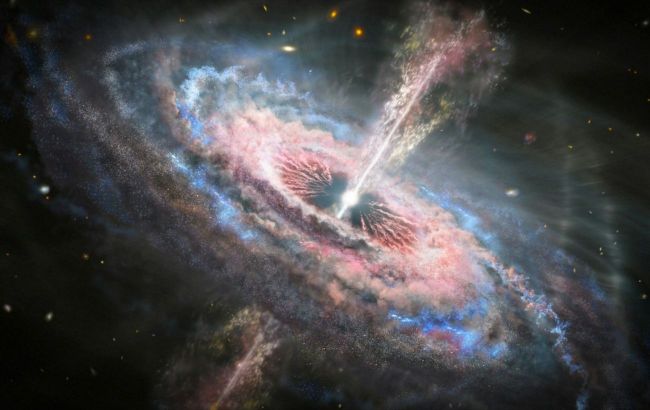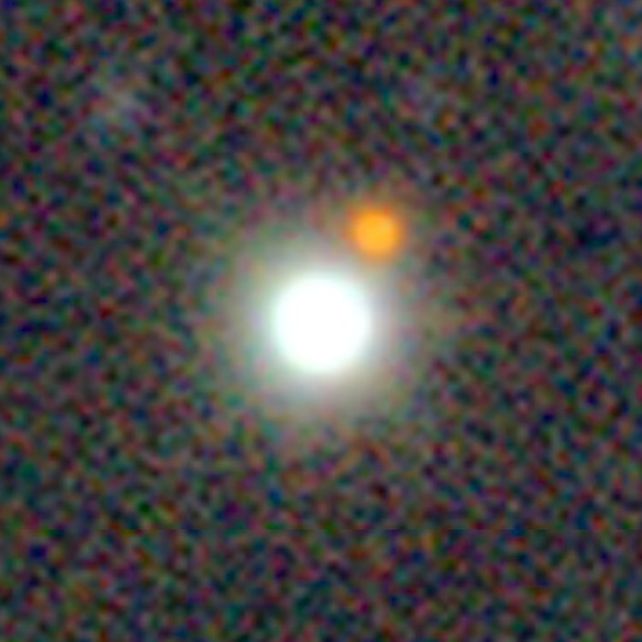Scientists discovered fastest-growing black hole in history
 Scientists have found the hungriest black hole that devours an amount equivalent to the mass of the Sun each day (photo: Unsplash)
Scientists have found the hungriest black hole that devours an amount equivalent to the mass of the Sun each day (photo: Unsplash)
Australian astronomers have discovered a supermassive black hole that consumes as much matter every day as is equivalent to the mass of our Sun. The mass of this black hole is currently estimated to be around 17 billion Suns, according to ScienceAlert.
What is known about the black hole
In 2022, the quasar J0529-4351 was first detected using the Gaia space observatory, which was conducting a census of stars in the Milky Way. Due to the object's high brightness, it was initially mistaken for a star in our galaxy. However, upon rechecking the data, it became clear that J0529-4351 is an incredibly bright core of a very distant galaxy - a quasar.
At the center of the quasar, J0529-4351 lies a black hole with a mass ranging from 17 to 19 billion times that of the Sun, located approximately 12 billion light-years away from us. The brightness of the quasar is determined by how intensely the black hole attracts material from its surrounding space.

The black hole at the center of the quasar galaxy is known as J0529-4351 (photo: Nature Astronomy)
In this case, we're talking about a mass being consumed daily comparable to the mass of the Sun. As matter falls into the black hole at tremendous speeds, colossal amounts of material heat up and emit bright radiation, which we observe as the glow of the quasar.
J0529-4351 not only impresses with its size but also raises new questions for astrophysicists, especially regarding how such monsters manage to reach their gigantic sizes in such a short time by astronomical standards.
After all, we see quasar J0529-4351 as it appeared approximately one and a half billion years after the Big Bang.
Also, according to scientists, Earth could have once been flat.

